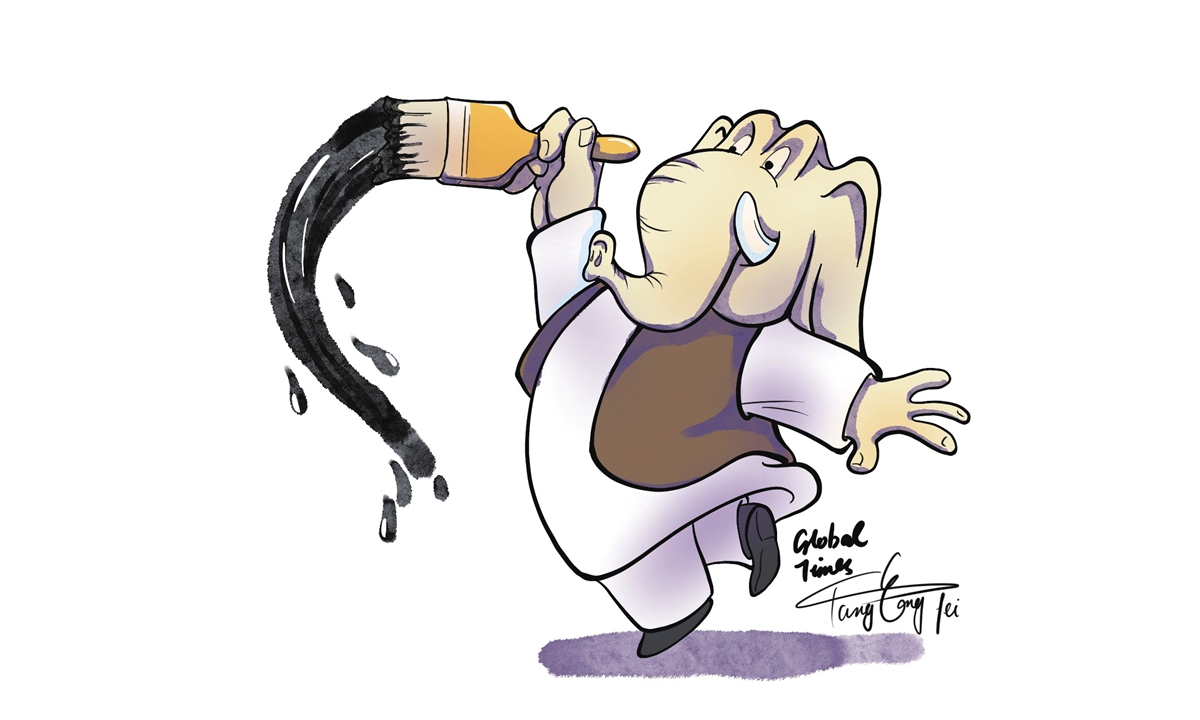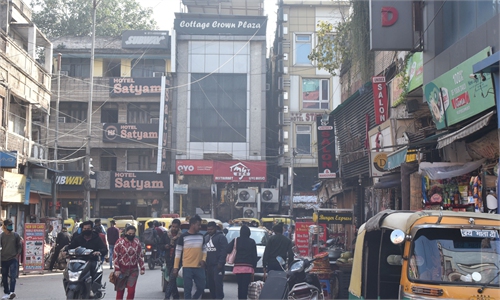
Illustration: Tang Tengfei/GT
During the 2022 Munich Security Conference (MSC) which concluded on Sunday, Indian External Affairs Minister Subrahmanyam Jaishankar warned countries of "debt trap" created by Chinese assistance, a false cliché that the US and its close allies often use to discredit China's Belt and Road Initiative (BRI) and the mutually beneficial economic and trade cooperation between China and its partners.
"We have seen countries, including in our region, being saddled with large debts." Jaishankar cautioned countries accepting China's financial assistance in a discussion on the theme "Regional order and security in the Indo-Pacific" with his Australian and Japanese counterparts, according to the Hindustan Times.
However, Bangladesh's foreign minister Abul Kalam Abdul Momen, who attended the discussion, told a different story about China's help. As Bangladesh requires funds to build up a wide range of infrastructure projects to meet the aspirations of its people, China offered a "basket of money" and affordable proposals, on the contrary, the aid from other partners came with a lot of strings, Momen said.
By all metrics, the recipient countries like Bangladesh have more credibility to talk about China's financial assistance than an outsider and alarmist -- India.
In fact, India's anti-China forces have long played a role in the slandering campaign against the mutually beneficial economic cooperation between China and South Asian countries such as Sri Lanka and Bangladesh. Jaishankar's latest hypocritical warning about a "debt trap" is nothing but another geopolitical gimmick to hinder other countries' pursuit for prosperity.
As leaders of many Asian countries have repeatedly noted, they have not and will not fall into a debt trap while accepting China's financial assistance. Instead, China's assistance has served to greatly boost their economic growth and improve their people's livelihood.
Despite ongoing slandering from the US, India and a couple of other countries, between 2018 and 2020, China is the top foreign investor in Bangladesh's economic zones, the Financial Express reported, citing data from the Bangladesh Economic Zones Authority (BEZA). And, Chinese enterprises contributed to more than one-third of the good proposals made to benefit the zones during the period, BEZA data showed.
Some politicians in India apparently regard South Asian countries such as Bangladesh and Sri Lanka as India's spheres of influence, and regard China as India's geopolitical rival. Guided by their distorted and incorrect zero-sum game mindset, they certainly don't want to see countries in the region join the BRI and enhance cooperation with China.
Yet, Indian officials' political manipulations like the "debt trap" slandering cannot hijack the economic laws and the trend toward great economic integration and globalization.
It is futile to discredit the mutually beneficial economic and trade cooperation between China and Bangladesh or other economies, and will only arouse indignation of related countries against India.
For the same geopolitical purpose and hostility against China, India has also refused to join regional economic cooperation and free trade agreements such as the Regional Comprehensive Economic Partnership (RCEP), which would obviously help India overcome its economic difficulties amid the COVID-19 pandemic.
Just like India's failed attempt to attract manufacturers from China, its attempt to meddle economic cooperation between China and its partners is doomed.
During a speech at the MSC, Chinese State Councilor and Foreign Minister Wang Yi warned the danger of division and confrontation in the world, and called for greater solidarity and cooperation under the banner of multilateralism.
It is hoped that India can give up regional meddling and actively participate in Asian economic cooperation to boost regional prosperity in the post-COVID era.
The author is a reporter with the Global Times. bizopinion@globaltimes.com.cn



